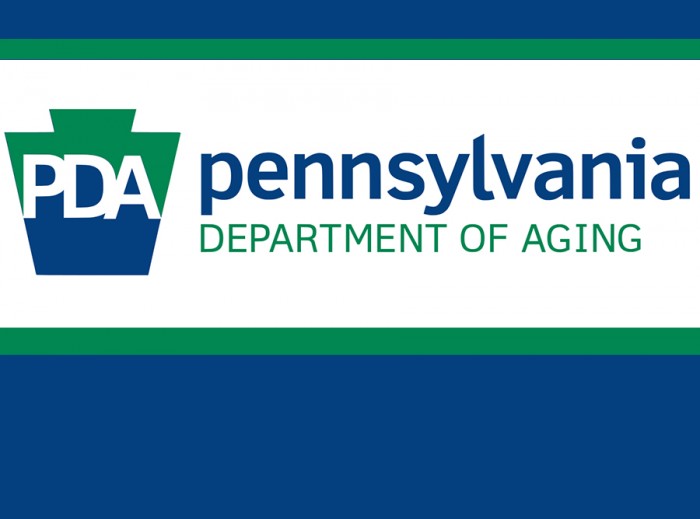DDAP Announces SAMHSA Grant Opportunities
Application Due Date: Monday, January 4, 2021
The Substance Abuse and Mental Health Services Administration (SAMHSA) is accepting applications for the Statewide Family Network (SFN) grant program. The purpose of this program is to more effectively respond to the needs of children, youth, and young adults with serious emotional disturbances (SED) and their families by providing information, referrals, and support. The program will also create a mechanism for families to participate in state and local mental health services planning and policy development. This population of focus will hereafter be referred to as children and youth. SAMHSA expects that this program will be a catalyst for transforming mental health and related systems in the state by strengthening coalitions among family organizations and between family members, policy makers, and service providers.
SAMHSA plans to issue approximately 10 grants of up to $95,000 per year for up to three years.
Statewide Consumer Network Program
Application Due Date: Monday, January 4, 2021
SAMHSA is accepting applications for the Statewide Consumer Network (SCN) grant program. The purpose of this program is to improve efforts to address the needs of adults with serious mental illness (SMI) by developing and/or expanding peer support services, peer leadership, and peer engagement strategies statewide. The population of focus is adults with SMI, including those who are underserved and underrepresented (e.g. consumers from ethnic, racial, and cultural minority groups); veterans; individuals who are chronically homeless; individuals with co-occurring disorders (COD); sexual orientation and gender identity minorities; and individuals who have been involved in the criminal justice system. It is expected that this program will increase access to mental health services for adults with SMI. It will also increase the quality of these services, increase the sustainability of consumer-operated organizations, and enhance state capacity and infrastructure to support the recovery of adults with SMI and their families.
SAMHSA plans to issue up to 12 grants of up to $95,000 per year for up to three years.
COVID-19 Regional Response Health Collaboratives To Strengthen Support For Long-Term Care Facilities
An Update on COVID-19 and Holiday Safety for All Stakeholders
DDAP Announces ASAM Alignment Resources Are Available
The Department of Drug and Alcohol Programs (DDAP) has announced that new resources are available for the 2.0 Intensive Outpatient and Partial Hospital Programs American Society of Addiction Medicine (ASAM) Criteria Service Alignment on the DDAP website.
- Level 2.0 Intensive Outpatient and Partial Hospital Programs recorded presentation
- Level 2.0 Intensive Outpatient and Partial Hospital Programs presentation slides
Advocacy for Additional Retainer Payments
Social Security Administration Online Tool
The U.S. Social Security Administration has created a new online tool for individuals with disabilities to complete required eligibility reviews. With the new tool, an individual who receives a request for an updated disability report in the mail may go online, complete the form, and sign it digitally.
Department of Health Provides Update on COVID-19
Record High Testing of Over 49,500 PCR Tests
FOR IMMEDIATE RELEASE
November 6, 2020
Harrisburg, PA – The Pennsylvania Department of Health today confirmed as of 12:00 a.m., November 6, that there were 3,384 additional positive cases of COVID-19, bringing the statewide total to 223,950. This is the highest daily increase of cases.
The most accurate daily data is available on the website with archived data also available.
The number of tests administered within the last seven days between October 30 and November 5 is 301,056 with 17,690 positive cases. There were 49,528 test results reported to the department through 10 p.m. on November 5. This is a record high number of PCR test results reported to the department.
There are 8,975 deaths attributed to COVID-19 with an increase of 38 new deaths reported. County-specific information and a statewide map are available on the COVID-19 Data Dashboard.
Mask-wearing is required in all businesses and whenever leaving home. Consistent mask-wearing is critical to preventing the spread of COVID-19.
There are 4,743 individuals who have a positive viral antigen test and are considered probable cases and 646 individuals who have a positive serology test and either COVID-19 symptoms or a high-risk exposure.
There are 2,408,366 individuals who have tested negative to date. Of those who have tested positive to date, the age breakdown is as follows:
- Approximately 1% are ages 0-4;
- Approximately 2% are ages 5-12;
- Approximately 5% are ages 13-18;
- Nearly 14% are ages 19-24;
- Approximately 36% are ages 25-49;
- Approximately 21% are ages 50-64; and
- Nearly 21% are ages 65 or older.
There are 1,599 individuals hospitalized with COVID-19. Of that number, 351 patients are in the intensive care unit. Most of the patients hospitalized are age 65 or older, and most of the deaths have occurred in patients aged 65 or older. More data is available here.
The department has seen significant increases in the number of COVID-19 cases among younger age groups, particularly 19 to 24-year-olds. An alert was sent to healthcare providers about the changing COVID-19 case demographics. Increases among 19 to 24-year-olds from April through November are available below:
- NC – Approximately 7 percent of cases in April to approximately 20 percent of cases so far in November;
- NE – 6 percent of cases in April to approximately 13 percent of cases so far in November;
- SE – Nearly 5 percent of cases in April to nearly 11 percent of cases so far in November;
- SW – Approximately 5 percent of cases in April to 10 percent of cases so far in November;
- NW – Nearly 7 percent of cases in April to approximately 10 percent of cases so far in November; and
- SC – Approximately 7 percent of cases in April to nearly 9 percent of cases so far in November.
In nursing and personal care homes, there are 27,104 resident cases of COVID-19 and 5,810 cases among employees for a total of 32,914 cases at 1,106 distinct facilities in 63 counties. Out of our total deaths, 5,903 have occurred in residents from nursing or personal care facilities. A county breakdown can be found here.
Approximately 12,811 of our total cases are among health care workers.
Statewide – The Wolf Administration has since noon on November 5:
- Provided the latest CMU metrics report.
- Announced funding to protect homeless during a COVID resurgence.
- Provided Pennsylvania State Police enforcement data.
The Wolf Administration stresses the role Pennsylvanians play in helping to reduce the spread of COVID-19:
- Wash your hands with soap and water for at least 20 seconds or use hand sanitizer if soap and water are not available.
- Cover any coughs or sneezes with your elbow, not your hands.
- Clean surfaces frequently.
- Stay home to avoid spreading COVID-19, especially if you are unwell.
- If you must go out, you are required to wear a mask when in a business or where it is difficult to maintain proper social distancing.
- Download the COVID Alert PA app and make your phone part of the fight. The free app can be found in the Google Play Store and the Apple App Store by searching for “covid alert pa”.
Updated Coronavirus Links: Press Releases, State Lab Photos, and Graphics
- Daily COVID-19 Report
- Press releases regarding coronavirus
- Latest information on the coronavirus
- Photos of the state’s lab in Exton (for download and use)
- Coronavirus and preparedness graphics (located at the bottom of the page)
- Community preparedness and procedures materials
All Pennsylvania residents are encouraged to sign up for AlertPA, a text notification system for health, weather, and other important alerts like COVID-19 updates from commonwealth agencies. Residents can sign up online.
MEDIA CONTACT: Nate Wardle

















